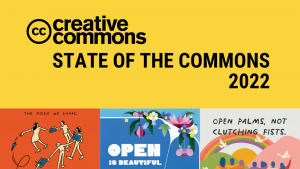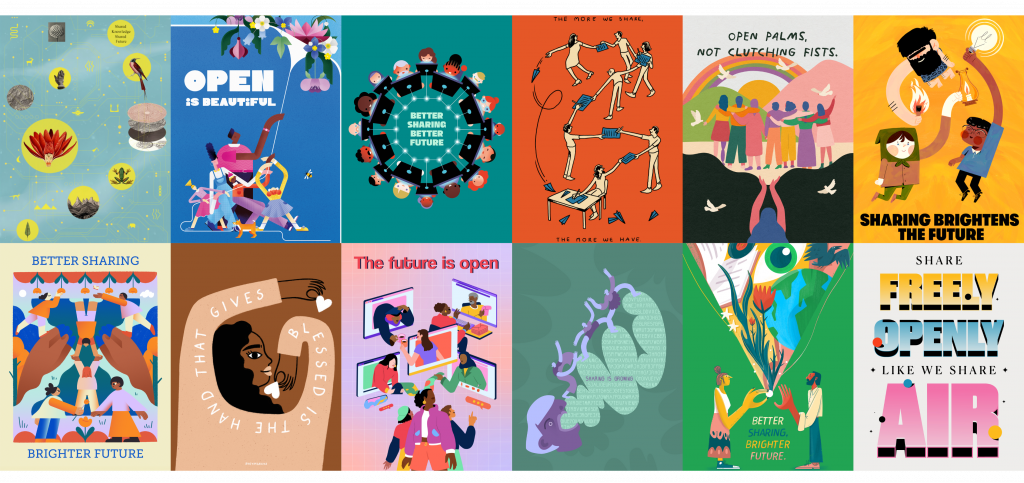CC’s #BetterSharing Collection | May: The Future Is Open
lundi 1 mai 2023 à 15:00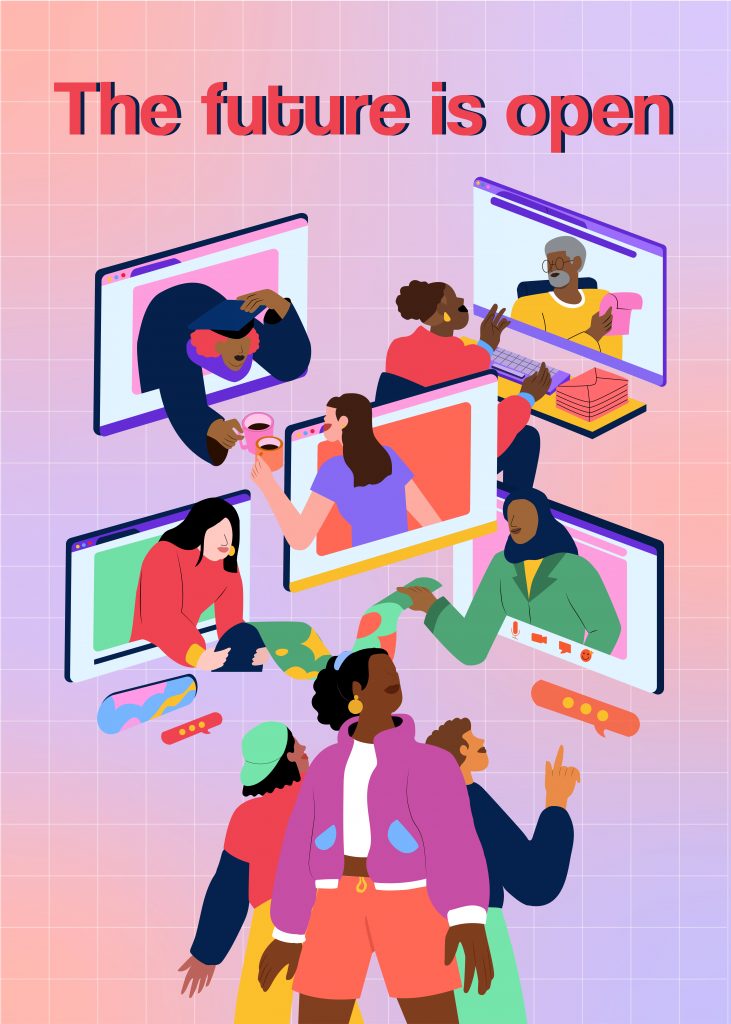
As part of our #20CC anniversary, last year we joined forces with Fine Acts to spark a global dialogue on what better sharing looks like in action. Our #BetterSharing collection of illustrations was the result — we gathered insights from 12 prominent open advocates around the world and tasked 12 renowned artists who embrace openness with transforming these perspectives into captivating visual pieces available under a CC license.
Each month throughout 2023, we will be spotlighting a different CC-licensed illustration from the collection on our social media headers and the CC blog. For May, we’re excited to showcase “The Future Is Open” by Mumbai-based fashion and graphic designer, Preeti Singh. The piece, licensed under CC BY-SA 4.0, was inspired by a quote from Ebenezar Wikina, Founder, Policy Shapers, and Advocacy Coordinator, Foundation for Partnerships Initiatives in the Niger Delta (PIND Foundation):
“Better Sharing, Brighter Future means that as we continue to find better ways to share ideas, products and solutions on the internet, we’d directly be working towards a brighter future for ourselves and generations to come.”
Meet the artist:
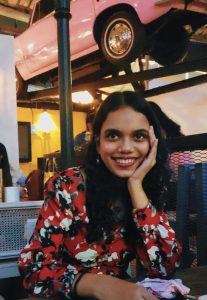
Preeti Singh is a talented visual communication designer and passionate artist, known for her captivating artworks that convey compelling stories. Based in Mumbai, India, she has made a name for herself as a skilled fashion and graphic designer. Since she was a child, Preeti has been fascinated by art, culture, and history, and has always had a keen interest in illustration and literature. Her creative journey began with these interests, which have greatly influenced her work. Preeti’s pieces reflect her extensive searches in art, culture, history, and mythology.
Follow Preeti on Instagram: @preeeti____
Follow Preeti on Behance: @PreetiSingh__
The full #BetterSharing collection is available on TheGreats.co to be enjoyed, used and adapted, and then shared again, by anyone, forever. View the full collection >>
The post CC’s #BetterSharing Collection | May: The Future Is Open appeared first on Creative Commons.

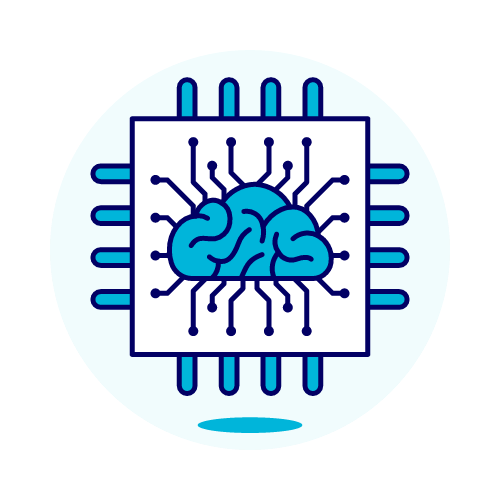 Generative AI has become increasingly prevalent in our daily lives. With these developments, it’s important these advancements are developed responsibly and ethically. By engaging with AI developers, Creative Commons hopes to provide valuable resources and tools to help AI developers navigate the complex landscape of copyright and licensing in the digital age. Moreover, AI developers bring a wealth of expertise and perspective to the Creative Commons community. As experts in machine learning, data analytics, and other cutting-edge technologies, they are uniquely positioned to help develop innovative solutions to some of the world’s most pressing challenges.
Generative AI has become increasingly prevalent in our daily lives. With these developments, it’s important these advancements are developed responsibly and ethically. By engaging with AI developers, Creative Commons hopes to provide valuable resources and tools to help AI developers navigate the complex landscape of copyright and licensing in the digital age. Moreover, AI developers bring a wealth of expertise and perspective to the Creative Commons community. As experts in machine learning, data analytics, and other cutting-edge technologies, they are uniquely positioned to help develop innovative solutions to some of the world’s most pressing challenges.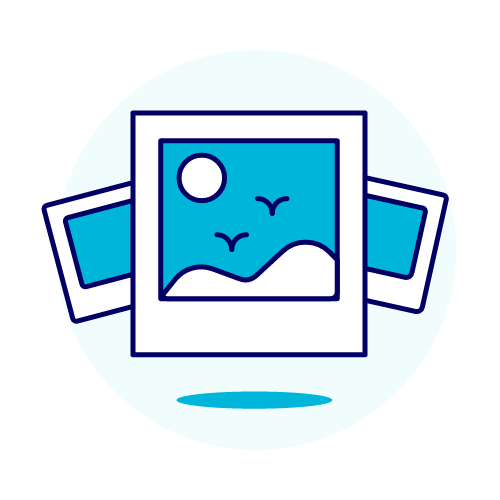 Connecting with NFT creators is essential to creating empowering licensing standards in the landscape of digital creativity. NFTs, or non-fungible tokens, are digital assets that represent ownership of unique, one-of-a-kind pieces of content, such as art, music, or videos. Our open licenses, by providing a flexible and customizable way to license work, foster autonomy, collaboration, and innovation. We believe this can help NFT creators gain further visibility and sustainability for their work. By working together, Creative Commons and NFT creators can help shape the future of digital content creation and distribution.
Connecting with NFT creators is essential to creating empowering licensing standards in the landscape of digital creativity. NFTs, or non-fungible tokens, are digital assets that represent ownership of unique, one-of-a-kind pieces of content, such as art, music, or videos. Our open licenses, by providing a flexible and customizable way to license work, foster autonomy, collaboration, and innovation. We believe this can help NFT creators gain further visibility and sustainability for their work. By working together, Creative Commons and NFT creators can help shape the future of digital content creation and distribution. Entrepreneurs play a significant role in driving innovation, pushing the boundaries of what’s possible and driving new developments in the business sector. We believe that through Creative Commons licenses, entrepreneurs can safeguard their intellectual property rights while also facilitating the free exchange of ideas and creativity. Contrary to the popular belief that competition is the driver of success in business, we believe business is more fruitful when we can unlock the full range of our collective creativity.
Entrepreneurs play a significant role in driving innovation, pushing the boundaries of what’s possible and driving new developments in the business sector. We believe that through Creative Commons licenses, entrepreneurs can safeguard their intellectual property rights while also facilitating the free exchange of ideas and creativity. Contrary to the popular belief that competition is the driver of success in business, we believe business is more fruitful when we can unlock the full range of our collective creativity.